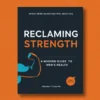Men’s Health Guide: A Complete Roadmap for Vitality
Foundations of Men’s Health: Biology, Behavior, and Environment
Men’s health is shaped by a dynamic interaction of biology, lifestyle, and environment. While hormones like testosterone play a role, the broader picture involves cardiovascular, renal, and endocrine systems working together. Genetics influence health outcomes, but daily habits—nutrition, exercise, and preventive care—are equally decisive. A proactive approach helps men maintain vitality and functional capacity across life stages. This men’s health guide emphasizes the power of prevention, daily routines, and informed choices.
Biology of Men’s Health: Beyond Hormones
The men’s health guide must go beyond stereotypes of testosterone. Aging affects vascular elasticity, muscle mass, and metabolic rate. Evidence-based strategies such as balanced nutrition, consistent exercise, and quality sleep can mitigate these changes. By adopting sustainable habits, men can preserve energy, independence, and resilience into later decades. Health is not static; it evolves with choices. Staying updated through reputable sources empowers men to adapt strategies that fit their goals.

Nutrition, Metabolism, and Body Composition in Men’s Health
Nutrition is a cornerstone of the men’s health guide, impacting metabolism, immunity, and energy. A balanced diet rich in vegetables, fruits, lean proteins, and whole grains supports long-term health. Micronutrients such as vitamin D, magnesium, calcium, and omega-3 fatty acids are crucial for bones, heart, and brain. Maintaining a healthy body composition—more lean muscle, less excess fat—improves insulin sensitivity and metabolic efficiency. Adequate hydration and portion control are simple yet powerful tools for men’s health.
Essential Nutrients for Men’s Longevity
This men’s health guide highlights nutrients like omega-3 fatty acids, fiber, potassium, and magnesium. They regulate blood pressure, support muscle function, and reduce chronic disease risks. A colorful, whole-food-based diet is the most effective way to achieve balanced nutrition. Healthy eating is not about restriction but about sustainable, enjoyable habits that align with personal and cultural preferences.
Exercise, Sleep, and Recovery in Men’s Health
Physical activity is a central pillar of this men’s health guide. Regular aerobic exercise improves cardiovascular fitness, while resistance training preserves muscle and bone health. Flexibility and balance training reduce injury risk. Sleep, often overlooked, is equally vital—7 to 9 hours of quality rest enhance mood, cognition, and recovery. Simple routines, like maintaining consistent bedtimes and reducing screen exposure before sleep, can dramatically improve outcomes.
Building a Balanced Routine for Men’s Vitality
This guide recommends combining strength training three times weekly, cardiovascular exercise twice weekly, and daily flexibility practices. Rest and recovery are essential to avoid overtraining. Tracking progress and making gradual adjustments ensures sustainability. Sleep and stress management are not optional extras but core elements of men’s health.

Mental Health, Hormones, and Stress Management
Mental well-being is inseparable from physical health. This men’s health guide underscores the importance of recognizing and addressing stress, anxiety, and depression. Techniques like mindfulness, journaling, and breathing exercises reduce stress reactivity. Social support and purpose-driven activities build resilience. Hormonal balance, influenced by lifestyle, affects energy, mood, and sexual health. Instead of focusing solely on testosterone, the guide emphasizes holistic approaches: good sleep, exercise, and nutrition.
The Mind-Body Connection
Exercise releases endorphins and improves mood, while social engagement strengthens emotional health. Cognitive training enhances sharpness. Mindfulness practices support emotional regulation. By integrating these strategies, men build resilience against stress and disease.
Preventive Care and Screenings in Men’s Health
Prevention is a key theme in this men’s health guide. Regular medical checkups, screenings, and vaccinations reduce long-term risks. Blood pressure checks, lipid profiles, and glucose monitoring are vital for early detection. Cancer screenings, dental care, and vision exams complete the picture of whole-person health. Preventive care empowers men to act early rather than react late.
Crafting a Personal Men’s Health Plan
This guide encourages men to:
- Assess current health status with professional input.
- Define measurable goals (e.g., improve sleep, lower resting heart rate).
- Adopt a structured fitness and nutrition plan.
- Prioritize stress management and sleep hygiene.
- Schedule regular screenings and vaccinations.
By following this men’s health guide, men can create a sustainable, personalized framework for vitality and well-being across life stages.




